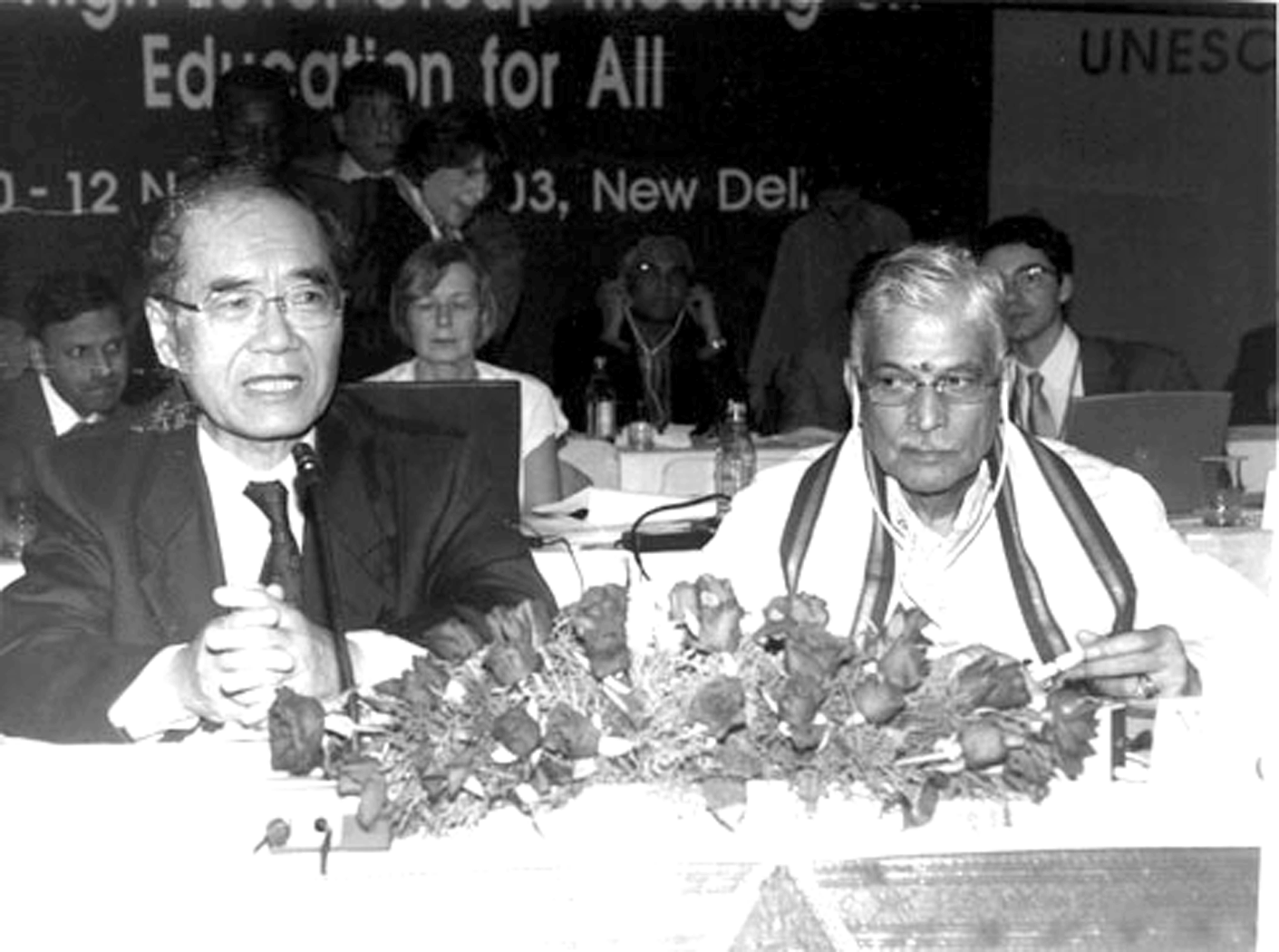hile inaugurating the third
High - Level Group
Meeting on Education
for All in New
Delhi on
10th November, 2003, the Prime Minister Shri Atal Behari Vajpayee called upon the world community to address the issues of economic disparities and gender gap in education in a focussed manner so as to come up with solutions. He apprehended that the unacceptable divide between the haves and have-nots will further widen as the market forces are shaping the growth of education and economic barriers preventing access to quality education for the masses. He stressed governments' continued role to provide quality education within the reach of common man. He emphasized that serious and sustained attention has to be paid to the education of girl child. A number of socio-cultural, economic and school-related factors are responsible for the gender gap. Our educational programmes should be so designed and implemented that they cover all girls. He informed that India has introduced several gender-specific schemes. The 'Sarva Shiksha Abhiyan' also has a strong gender focus. Our gender indicators are showing improvement and our goal of 'Education for All' will be achieved well before the deadline of 2015. Shri Vajpayee urged the High Level Group to have detailed discussion on the issues relating to the WTO negotiations under General Agreement on Trade in Services (GATS), which adversely affect the campaign to realize the goal of Education for |
All. The President of Kyrghystan, Mr. Askar Akayev, the Vice President of Congo, Mr. Arthur Zahidi N' Goma, Director General of UNESCO, Mr. Koichiro Matsuura, Union Minister for Human Resource Development, Dr. Murli Manohar Joshi, Minister of State for Human |
hundred percent. Outlining the strategies for women education, Dr. Joshi said, 'it has been our endeavour to ensure that this focus on girls becomes a people's programme'. The effort is to have a flexible, micro-planned solution to the problems preventing girls from getting education, he added. |
Resource Development, Shri Sanjay Paswan were among the dignitaries present on the occasion.
Dr. Murli Manohar Joshi informed that India has seen a decline in the number of illiterates by 32 million in the decade 1991-2001 despite an increase in population. Also, the gender gap had declined from 24.8 percent in 1991 to 21.7 percent in 2001. As against what the UNESCO's reports say, the gender parity index has increased more than |
Dr. Joshi argued that the 'fast track initiative' for financing education programes in 18 countries be expanded to include India owing to huge numbers involved.
Mr. Koichiro Matsuura, Director General, UNESCO in his welcome address gave an overview of the global efforts in the last one year towards achieving education for all. He appreciated recent steps taken by India for it and making education a fundamental right. |
